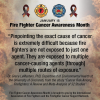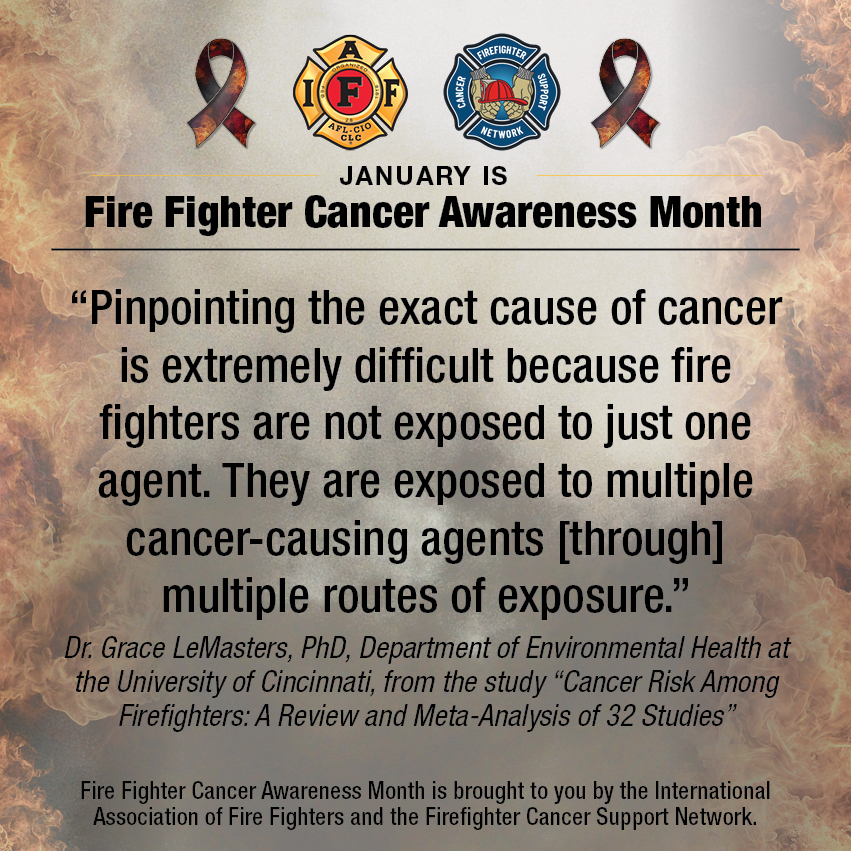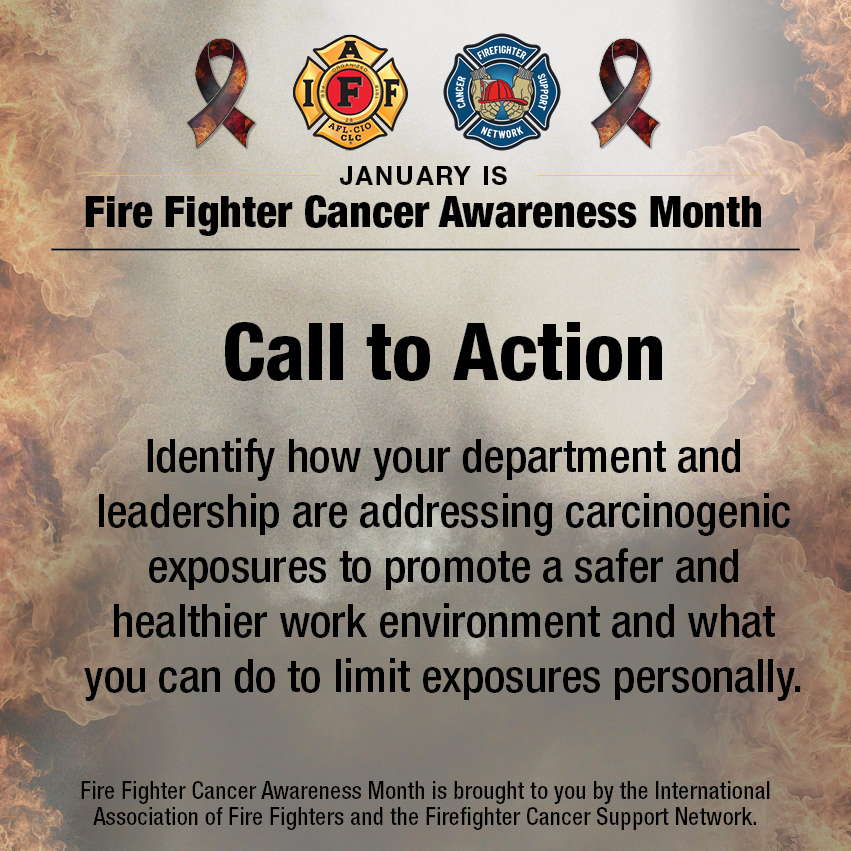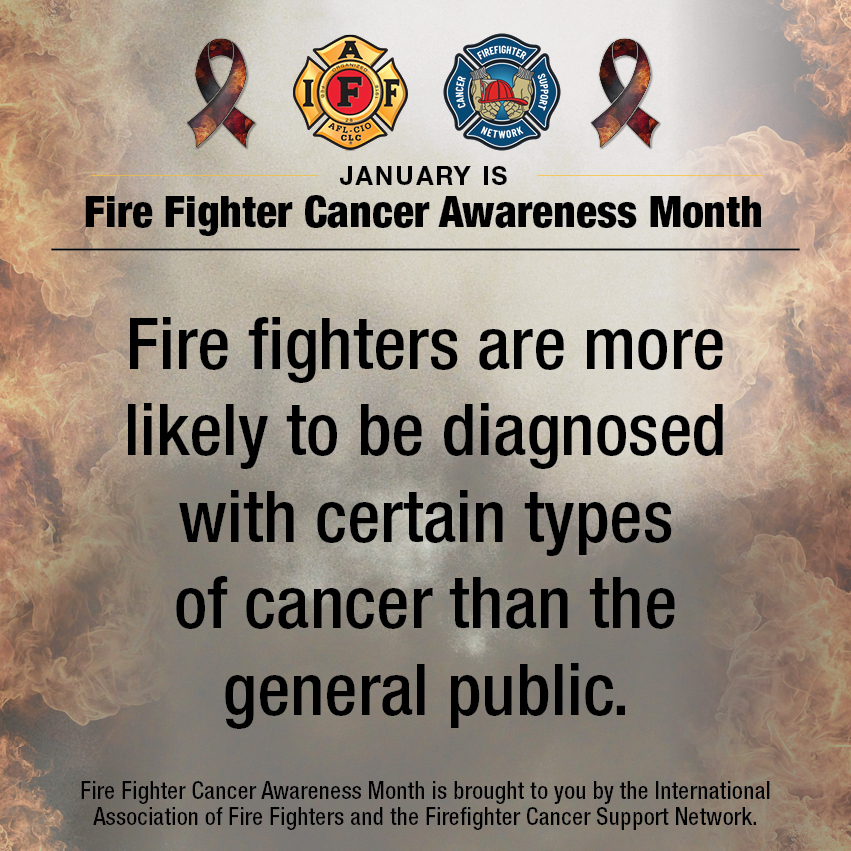With an understanding of cancer in the fire service, use this week to explore scientific research that identifies the link between occupational exposures and cancer rates among fire fighters. Additionally, this week looks at research on screening for cancer and exposure routes.
To get the most from this week, we recommend taking one day this week to conduct a Safety Stand Down. All resources are also available to review at your convenience.
- Personal Story:Boston FD’s Glenn Preston Video (10-minute runtime)
This is the story of our brother Glenn Preston of the Boston Fire Department who was diagnosed with occupational cancer at age 39. - Research Study: Cancer Risk Among Firefighters: Review and Metanalysis of 32 Studiesby Dr. Grace LeMasters
The results of this research confirm previous findings of an elevated risk for multiple myeloma among fire fighters. In addition, a probable association with non-Hodgkin lymphoma, prostate and testicular cancer was demonstrated.
Educational Presentation #2: Scientific Research Related to Occupational Cancer
This is a 29–slide PowerPoint presentation reviewing the results from four key fire fighter cancer research projects. Note: Make sure you view the presentation in “presenter mode” to capture the instructor notes for the slides.
- Survivor Story: Lonnie Mitteis / Grand Island, NE Local 647 (4-minute video)
- Leadership/Survivorship Study: Impact of Organizational-Level Factors on Cancer Screening Activities in Fire Departments
A cross-sectional study from the Sylvester Firefighter Cancer Initiative / Alberto J. Caban-Martinez - NFORS Tracker App: Following fire activities, exposure reporting is necessary to document exposures that can lead to occupational diseases and cancer. The National Fire Operations Reporting System (NFORS) Exposure Tracker is available as an app for fire fighters, paramedics or officers to log exposure and incident details in a private, encrypted and secure online environment. The information gathered will help researchers better understand toxic exposures on the fire scene and develop new treatments and prevention protocols for occupational diseases, including cancer. Download the NFORS Exposure Tracker App by going to the app store on your mobile device.
- Factsheets:




Comments are closed.